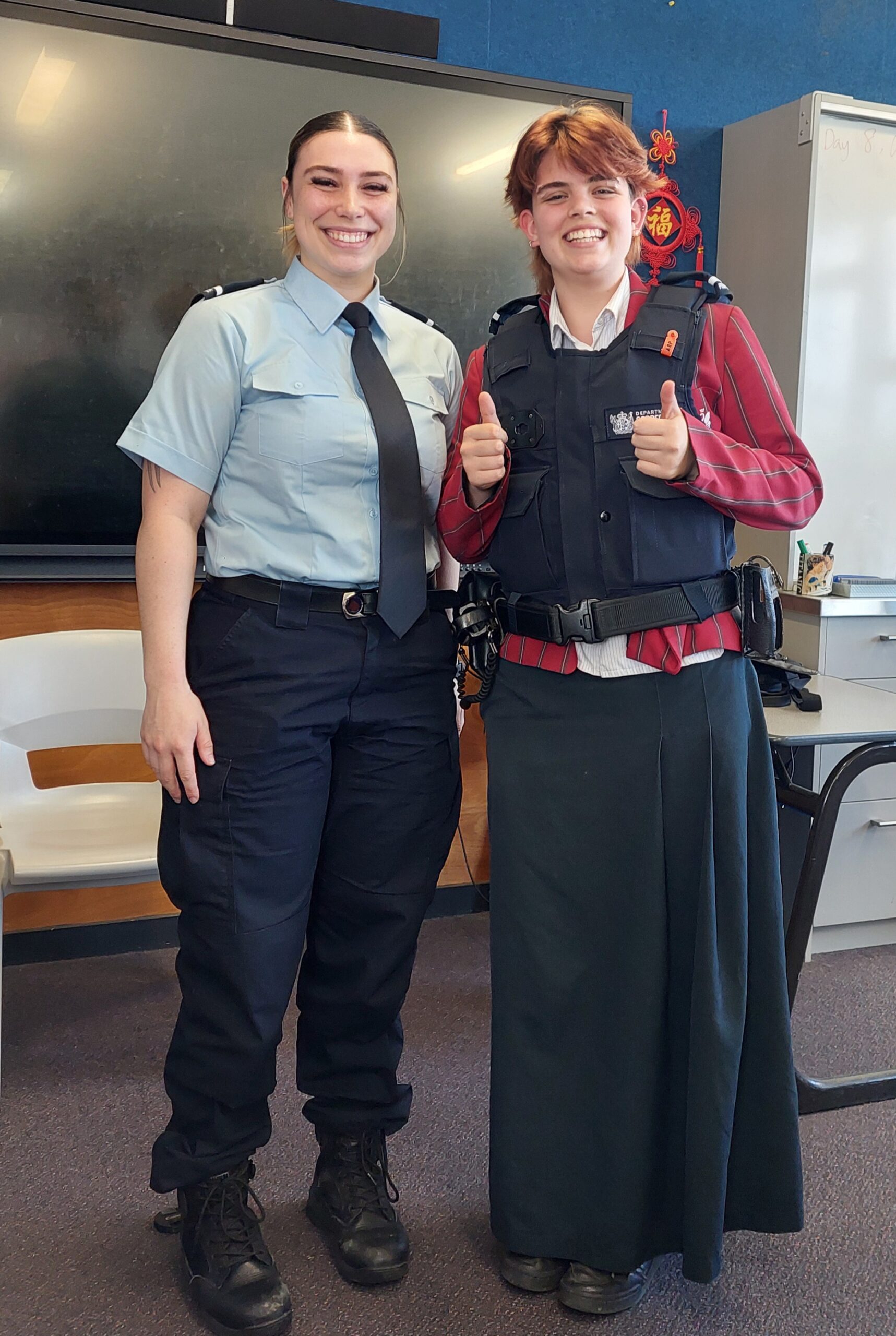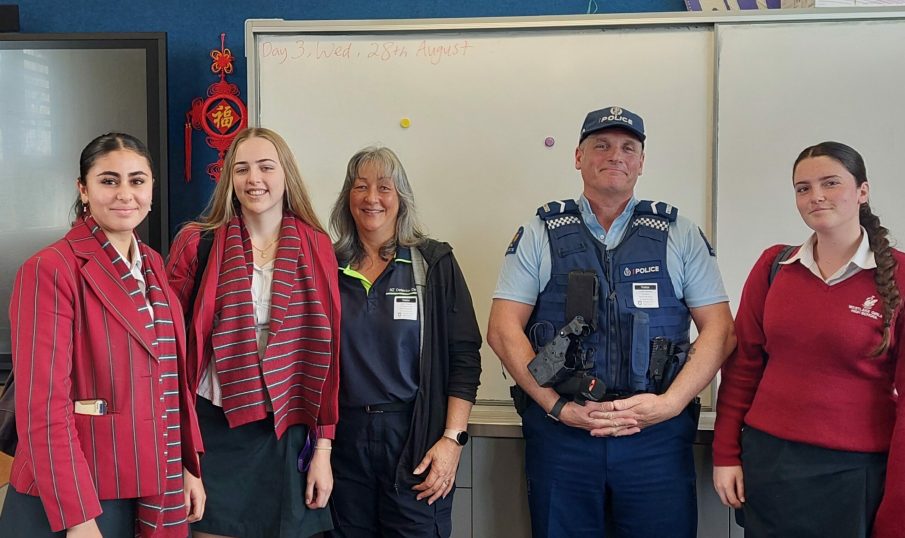We were lucky to have two outstanding speakers in Week Six. Lance Dawson is an experienced police officer working for the Police Maritime Unit. Janet Williams runs a dog-handling business specialising in supplying scent detectors and dog screening for workplace safety.
Janet shared her journey from being an ‘average’ student here at Westlake Girls to her experience in the Police Force, where she studied canine behaviour and specialised in handling scent-detector dogs. From there, she joined a brand new task force at Auckland Airport, working with bio-security beagles and helping to secure Aotearoa’s borders from Foot and Mouth disease. Janet led this programme for 13 years. She now runs her own business, providing scent-detector dogs to workplaces, and loves working with canines daily. Her advice to students is to “find your passion.”
Lance has worked for the NZ Police Force for 23 years. He has found variety in his career, starting as a constable on the beat, and spending time with the Burglary, Traffic Enforcement, Community Policing and Team Policing units. He is now enjoying the learning curve in his new role on the boats, with more of a focus on safety and search and rescue than on catching ‘bad guys’. When asked what qualities make a great police officer, Lance listed good communication skills, the ability to de-escalate fraught situations, and the personal qualities of empathy, honesty and integrity.

In Week Seven, our main Career Bites speaker was a Corrections Officer. Baileigh Greaves works at Paremoremo, New Zealand’s only maximum security prison. She was supported by Kiana Tavino, a recruitment advisor for the Department of Corrections. As a C.O., Baileigh’s work focuses on keeping prisoners safe and helping them to rehabilitate. Her pathway began with studying law, but after realising university wasn’t for her, she found her way into Corrections “on a whim”. However, she found the recruitment process smooth and the training exciting, as she learned how to de-escalate situations and execute Control and Restraint “takedowns”.
Like Lance, Baileigh emphasised the importance of communication and empathy. Her best days are those when even one prisoner says thank you, and she knows she’s helping someone to change for the better.
Students interested in criminology and psychology could consider Corrections as a career pathway. There are many roles under the Corrections umbrella, including administrators, nurses, case managers, psychologists, health and safety representatives, and staff welfare officers.
Our speakers offered great insights into the wide variety of roles in their fields. They inspired students with their energy, professionalism and enthusiasm for helping others and keeping communities safe.


